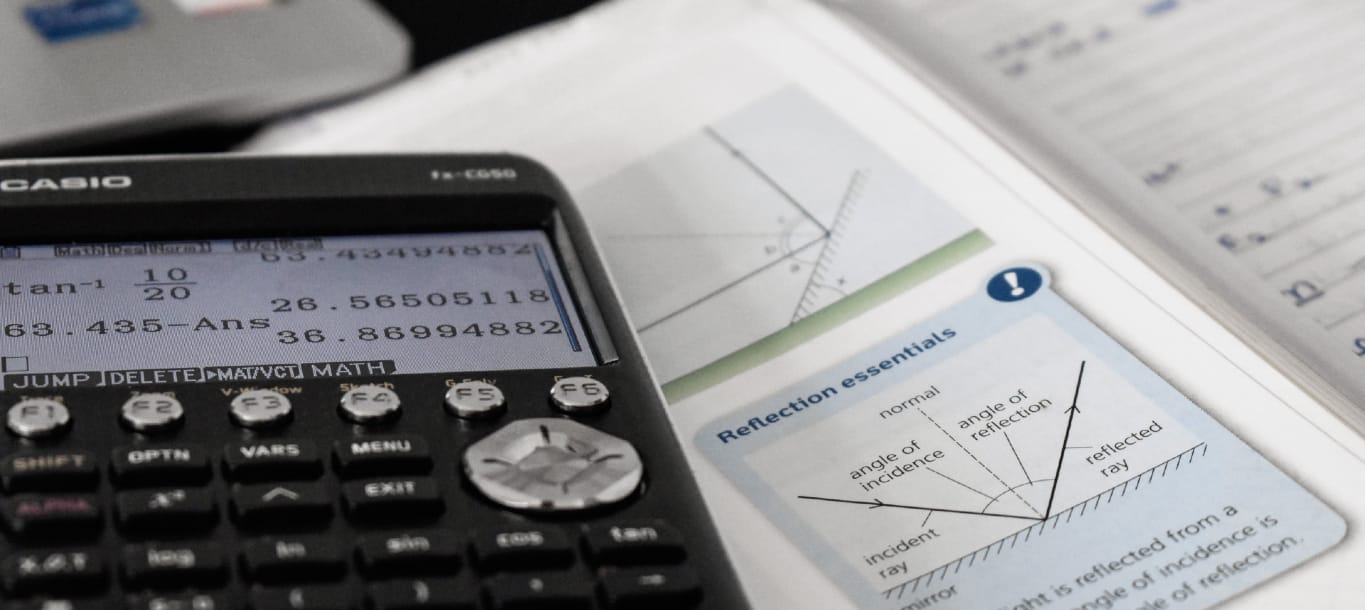Studying Physics
-
What can I do with a physics degree?
Whether you’ve just started your qualification or you’ve recently graduated, you’ll be pleased to know that there are many different opportunities for people who have studied physics.

-
Here, we will lay out how a physics degree will help support your career to allow you to decide whether it is the right course for you.

-
5 reasons why you should study physics
If you’re not sure what to study, why not choose physics? You’ll have the opportunity to learn about how and why the world works, and you’ll be spoilt for choice when it comes to choosing a career.

-
Should I do triple science or double science at GCSE?
One of the biggest questions for GCSE students is whether to take triple science or double science. This article will help you understand the differences between the two options, and which option is best for you.

-
6 reasons why you should study physics post-16
Studying physics allows you to challenge yourself, and opens up a wide range of career options. Here are six reasons why you should study physics post-16.

-
Despite how exciting the study of physics is, some students can be put off from studying it due to its supposed difficulty. While you may find parts of the curriculum trickier than others, physics is the same level of difficulty as any other subject!

-
How to make the most of a physics degree
Studying physics at university provides you with a number of transferable skills, setting you in good stead for a future physics career. However, there are a number of things you can do as a physics student to maximise your career prospects.

-
What undergraduate physics degrees are there?
Applying for university can be tricky: there are so many different courses to choose from! Let’s explore some of the many physics and physics-related degrees available! We’ll also offer some advice to help you choose between them.

-
Does it matter which university you study physics at?
Whether you’re applying for a physics course, or have already started your degree, you’ve probably wondered which university provides the best physics course. While some universities offer more prestige, making the most of the course is just as important.

-
One of the biggest barriers to higher education is not having the financial resources. However, there are plenty of loans and scholarships available to aspiring physics students.

-
It can be easy to feel overwhelmed by the range of physics degree options. Even one university may have a myriad of different physics degrees. We’ll help you decide which one is best for you!

-
Is a physics master’s worth it?
Completing a physics master’s degree is a great way to continue your education, and delve deeper into a subject you’re passionate about. But what things should you consider when deciding to pursue a physics master’s?

-
Physics degree entry requirements
The majority of universities require students to satisfy certain requirements before they can be admitted onto their undergraduate or postgraduate physics courses. But what are the typical requirements, and what can you do if you don’t meet them?

-
How long does a physics PhD take?
A PhD is the highest level of education you can receive in physics, and allows you to conduct independent research into a topic that fascinates you. But, how long does it take to finish a PhD?

-
Should I study physics at postgraduate level?
Studying physics at postgraduate level is an exciting experience, but it can also be stressful and expensive. Here are some things to consider when deciding whether to pursue physics further…

-
Can I pursue a physics career without studying physics?
The diverse nature of physics means there are a wide range of careers available, even for those who haven’t studied physics before. Here’s how you can break into the field as a non-physics student…

-
What physics master’s are there?
Completing a physics master’s is a great way to gain a deeper understanding of physics, and to conduct research in an area you’re interested in. But what are the different physics master’s courses you can do?

-
Completing a physics PhD is a great way to gain research skills, and delve deeper into a topic you’re interested in. However, the process is lengthy and the costs can add up. Here are some things to consider when deciding whether to do a physics PhD...

-
Leaving Cert: Why should I study physics?
If you’re a Junior Cycle student in the Republic of Ireland, you’re probably thinking about which subjects to take as part of the Leaving Cert. With 34 subjects on offer and the restriction to choose just seven, it can be difficult to decide between some of your favourite subjects. If you’re interested in studying physics, but not sure where it could lead you, here are some of the benefits of pursuing the subject.

-
Scottish Highers: Why should I study physics?
If you’re an S4 student, you’re probably thinking about which subjects you should take as part of your Highers. While we’re biased, choosing physics as one of your four or five subjects is a great way to gain transferable skills, be eligible for many STEM university courses and understand the physics that makes our modern world possible.

-
Where should I study physics in Wales?
Interested in pursuing physics further? A range of universities and colleges in Wales offer physics and/or physics-related courses. Whether you’re interested in gaining professional experience, or contributing to student life, here are some physics courses based in Wales that you might be interested in.

-
Where should I study physics in Northern Ireland?
Whether you’re interested in studying physics research, or understanding how physics theory can be applied to help solve real world problems, there’s a course for you. Keep reading to discover some of the physics course providers in Northern Ireland.

-
Where should I study physics in Scotland?
Doing your Scottish Highers? You’re probably thinking about life after school, and your next steps. If you’re interested in pursuing physics at university, there are a number of amazing institutions in Scotland.

-
Can you work as an engineer with a physics degree?
Given that engineering is the application of physics to help solve problems, it makes sense that people interested in physics are also interested in engineering. However, do you need to study engineering to become an engineer? Read on to learn whether there are specific degree requirements for engineers, some tips to help you decide which subject to take, and why you don’t even need to go to university to be an engineer.

-
If you’re interested in studying physics at university, you might be surprised to learn there are so many different types of physics degrees on offer. While exact degree options vary between universities, you’re likely to find something that suits your unique interests. This article will go over the most common physics undergraduate degrees in the UK, and answer questions like why Physics and Philosophy is so popular, to the benefits of doing an integrated master’s degree.

-
Physics Degree vs Engineering Degree
Deciding what to study at university can be stressful, especially if you keep being asked about your plans. This decision can be made all the more difficult if you’re struggling to choose between two similar subjects, such as physics and engineering. This article will detail the differences between an engineering and a physics degree, and offer some helpful tips to help you decide between the two.

-
Launched in September 2020, T levels are a new educational opportunity for post-16 students. These two-year programmes allow students to develop core skills and knowledge to prepare them for a variety of careers. This article will delve into the content and structure of the new Science T level, explaining how it can prepare you for a career in STEM.
